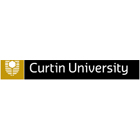Doctor of Education
Doctor of Education
Not all teachers and educators seeking doctoral level studies intend to become researchers. If you intend to stay in teaching and become a leader in classroom teaching, curriculum development, multimedia, school improvement, evaluation or school-based professional development, our Doctor of Education (EdD) may suit you better than the traditional Doctor…
Categories
COURSE DESCRIPTION
Not all teachers and educators seeking doctoral level studies intend to become researchers. If you intend to stay in teaching and become a leader in classroom teaching, curriculum development, multimedia, school improvement, evaluation or school-based professional development, our Doctor of Education (EdD) may suit you better than the traditional Doctor of Philosophy (PhD). The EdD also accommodates currently occupying positions of leadership in universities, schools, school districts, TAFE colleges, teaching hospitals and system-wide central offices needing to upgrade their qualifications.
Our EdD will provide you with doctoral level study which will simultaneously provide you with advanced, in-depth knowledge related to your profession and involvement in research work closely related to the improvement of your professional practice. It will provide you with high-level research and inquiry skills, enabling you to evaluate, implement, commission, design and administer research into the many different aspects of education provision. You’ll also develop an understanding of the policy implications of such research.
The EdD is more closely related to your professional world, is research based and research driven, but with a distinctive orientation toward practical research outcomes that will contribute to the growth of the education profession as well as the discipline itself.
A higher degree by research differs from other postgraduate degrees in that at least two-thirds of the study program must involve research. Although some coursework units may be required, the main part of your work will be in the form of a thesis written under the guidance of a supervisor and associate supervisor(s). Your thesis must, in the opinion of the examiners, be a substantial original contribution to the knowledge or understanding of any field through the discovery of new facts, the formulation of theories or the innovative reinterpretation of known data and established ideas. It must also demonstrate your capacity to conceive, design and complete independent research. As an alternative to a single major dissertation, you may choose to complete a series of sequential and complementary scholarly papers which can be submitted in conjunction with an exegesis.
The majority of our domestic students remain employed full-time while studying part-time. As such, we encourage the integration of your coursework and research with the needs and directions of your workplace.
Throughout your studies, the Faculty of Humanities will provide you with access to facilities and resources to support your research, and financial assistance to attend appropriate local and international conferences. You will also be provided with a professional support infrastructure which exemplifies best practice in education by providing access to relevant technologies and resources.
Why research at Curtin
Curtin is widely recognised for applied research firmly focused on solving real-world problems.
Underpinning our research endeavours are strong partnerships with industry, business and
government, which result in outcomes that greatly benefit the broader community locally,
nationally and globally. Our international reputation for being a strong partner in industry-
driven research ensures our graduates enjoy outstanding opportunities to become innovators
in their fields.
Professional recognition
Depending on your area of speciality, you may be eligible for membership of various professional organisations upon graduation.
REQUIREMENTS
A bachelor degree, a Postgraduate Diploma in Education and/or a Master of Education or equivalent. Those with a Bachelor of Education with first or upper second-class honours are also eligible.
- CUTE (Curtin Uni Test of English) – A
- Pearson Test of English – Academic (PTE-A) 58
- Cambridge Certificate in Advanced English (CAE) Grade C
- English Language Bridging (ELB) Grade B
- IELTS (International English Language Testing System) – Listening – 6.5, Reading – 7.0, Writing – 7.0, and Speaking – 6.0; Overall band score 6.5;
- TOEFL (Test of English as a Foreign Language) 79 (overall) Reading 13 Listening 13 Speaking 18 Writing 21.
EDUCATIONAL INSTITUTION
Curtin University is Western Australia’s largest and most culturally diverse university with Australia’s third largest international student population. Around 60,000 students from more than 130 countries study a Curtin degree, at locations including Perth, Margaret River, Kalgoorlie, Sydney, Malaysia and Singapore. Our cultural diversity adds a rich and valuable dimension to the campus atmosphere, preparing all graduates to live and work effectively in an increasingly global environment. We offer a range of industry-aligned undergraduate and postgraduate courses in business, humanities, health, engineering and related sciences. We also have a long-standing focus on Aboriginal and Torres Strait Islander education and culture, supported by our Centre for Aboriginal Studies.Curtin is widely recognised for its practical research that is focused on solving timely, real-world problems. In recent years our research activity has grown significantly, driving our rapid rise up the international university rankings.As a university that never settles, we will continue to develop existing partnerships and establish new ones in areas relevant to our research and teaching.




